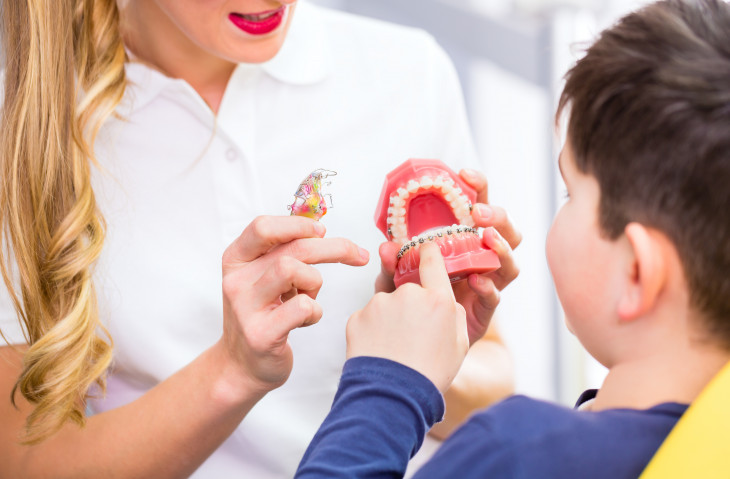Orthodontists work with patients of all ages. More people are deciding to straighten their teeth later in life. Licensure is required and based on applicants successfully graduating from an accredited dental school. Passing practical and written exams is part of the process.
Education & Training
Dental students require a bachelor's degree prior to entering dental school. Every school has individual requirements. Students are expected to have completed certain science classes including chemistry and biology. Having a science major may increase one's chance of acceptance into dental school; however, no specific major is required for most dental programs.
The DAT or Dental Acceptance Test is required by college graduates who plan on applying to dental school. These tests are used alongside additional factors such as recommendations and grade point average to admit students into their programs.
Students study the following classes in dental school: anatomy, local anesthesia, radiology and the study of oral health and disease known as periodontology. Dental school includes students completing practicums within clinical settings under the supervision of a licensed dentist.
Students wishing to study any aspect of dentistry ideally should take the following in high school: math, physics, biology, chemistry and anatomy.
Training
There are 9 dental specialties that require dentists finish extra training prior to studying that specialty. This often means a 1 or 2 year residency program that is related to their field. There is no additional training after dental school for those becoming general dentists; however, numerous continuing education opportunities are available.
Those who wish to conduct research on a full time basis or prefer to teach at dental school often take an extra 2 to 5 years of training. Many dentists teach part time during their practice; supervising dental students during practicum clinics.
Licenses, Certifications, and Registrations
Orthodontists are required to have a license in order to practice. Most dentists have a degree from an accredited dental school and have successfully passed a practical and written exam.
Additionally, dentists who wish to specialize in one of the 9 specialty areas require a license in that particular specialty. This takes an additional 2 to 4 years of education post dental school. Some specialties require a special state exam to be taken. Post secondary residency may be required and this can last up to 2 years in length.
Skills and Qualities that will Help
Communication skills: Orthodontists have to communicate with not only their patients and their families but their dental assistants, dental hygienists, receptionists and support staff.
Detail oriented: Orthodontists have to pay attention to details to determine if they are using the best course of action. They need to note the position of the teeth and if they are moving as planned or if further adjustments have to be made.
Dexterity: Great hand and finger coordination is necessary. Mouths do not offer a lot of space to work within and minute adjustments need to be made continually throughout treatment.
Leadership skills: Many orthodontists have their own practice. They have to successfully lead and manage their staff.
Organizational skills: Excellent organizational skills are necessary to keep track of patient care, records, billing and related information. These skills are vital for both business and medical settings.
Patience: Orthodontists are helping teeth move into new positions; thus, this can be painful for their patients. It is important to be patient during the process to ensure the patient has the best experience possible.
Physical stamina: Bending over patients for extended periods of time is part of this job. Dentists need to be comfortable performing physical tasks on people.
Problem-solving skills: Strong problem solving skills are important in order to evaluate each patient's mouth and determine their unique course of action to provide attainable results.









